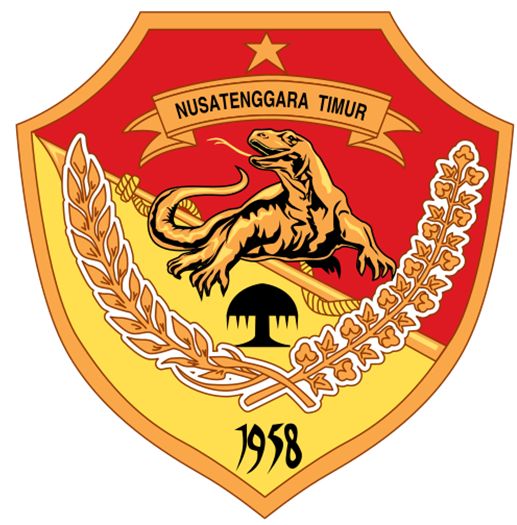Nusa Tenggara Timur: Difference between revisions
Jump to navigation
Jump to search
Knorrepoes (talk | contribs) (Created page with '{|width="100%" style="color:black; background-color:#ffffcc;" |width="15%"|50 px|left |width="70%" align="center" |'''Heraldry of the World<br/>Civic heral…') |
Knorrepoes (talk | contribs) m (Text replace - "'''Origin/meaning :'''<br/> The" to "====Origin/meaning==== The") |
||
| Line 9: | Line 9: | ||
[[File:nusatimu.jpg|center]] | [[File:nusatimu.jpg|center]] | ||
====Origin/meaning==== | |||
The lizard on the shield is a Komodo lizard, the largest lizard in the world and used as a symbol for the natural richness of the province. Above the lizard is the name of the province and a star, symbolising divinity.<br/> | The lizard on the shield is a Komodo lizard, the largest lizard in the world and used as a symbol for the natural richness of the province. Above the lizard is the name of the province and a star, symbolising divinity.<br/> | ||
Below the lizard are a branch or cotton and an ear of rice, symbolising agriculture. The tree is a Warigin tree and symbolises unity. The spear on the division line symbolises pride and strength.<br/> | Below the lizard are a branch or cotton and an ear of rice, symbolising agriculture. The tree is a Warigin tree and symbolises unity. The spear on the division line symbolises pride and strength.<br/> | ||
Revision as of 07:06, 21 November 2012
| Heraldry of the World Civic heraldry of Indonesia |
NUSA TENGGARA TIMUR
Origin/meaning
The lizard on the shield is a Komodo lizard, the largest lizard in the world and used as a symbol for the natural richness of the province. Above the lizard is the name of the province and a star, symbolising divinity.
Below the lizard are a branch or cotton and an ear of rice, symbolising agriculture. The tree is a Warigin tree and symbolises unity. The spear on the division line symbolises pride and strength.
The year 1958 is the year the province was created.
As with all provincial arms, the shield is a pentagon, symbolising the five principles of the Pancasila, the Indonesian National 'guidelines'.
Literature : background from H.R.H. Leo Nesnoni, Timur.

